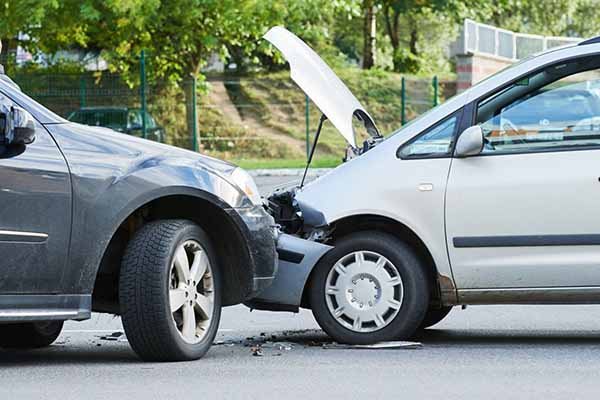The current legislation of the Russian Federation does not clarify the definition of moral damage. In accordance with Art. 151 of the Civil Code of the Russian Federation, it can be established that this concept includes suffering of a moral and physical nature.
Such a formulation is not accepted by the court as sufficient, since too many cases fall under such an interpretation. Therefore, the Supreme Court of the Russian Federation gives its own version, which is used during proceedings.
If we take into account the general components of the definition of the Armed Forces of the Russian Federation, moral harm is suffering of a moral or physical nature resulting from the action or inaction of a person who infringes on the intangible benefits, personal property or non-property rights of another citizen.
[wpmfc_short code=”ANDO”]
Grounds for compensation for moral damage according to the norms of the Civil Code of the Russian Federation
The following positions are accepted as grounds for the recovery of moral damages, which act as a measure of civil liability:
- causing harm;
- the presence of a clear status of illegality in the actions of the defendant;
- presence of the defendant's guilt;
- an identified cause-and-effect relationship between the actions of the defendant and the resulting damage.
To clarify current situations, please refer to Art. 1100 of the Civil Code of the Russian Federation, according to which the tortfeasor is obliged to compensate for moral damage if damage was caused:
- life and health of a citizen as a source of increased danger;
- through illegal criminal prosecution or illegal implementation of preventive measures;
- disclosure of false and flawed information about an individual.
Also in judicial practice, other cases that fall within the definition of the concept in question are used.
Moral damage: what is it about and when can you collect it?
The wording on moral damage is not present in 214-FZ. But the shareholder still has the opportunity to demand compensation for the experiences experienced in accordance with part 9 of Art. 4th Law 214-FZ.
The specified article 4 contains a reference to the norms of the Law of the Russian Federation “On the Protection of Consumer Rights”. Article 15 of this act provides the shareholder - an individual with the right and opportunity to claim funds from the developer for compensation for non-material damage.
However, individual entrepreneurs also have a good chance of receiving compensation from the developer. To do this, his apartment must be purchased on the basis of an agreement concluded without the appropriate marking (the DDU was concluded by citizen Ivanov I.I., but not individual entrepreneur Ivanov I.I.).
If, in accordance with a share participation agreement, non-residential premises are acquired, it is by default considered to have an entrepreneurial purpose. Courts usually refuse compensation for moral damages to individual entrepreneurs.
Moral damage to the shareholder can mean physical or spiritual discomfort, suffering and anxiety that the buyer experienced as a result of the developer ignoring the obligations and conditions of the DDU. That is, the fact of violation of consumer rights (that is, the terms of the share participation agreement) in the form of delay or otherwise must be proven in order to receive compensation. The inconveniences suffered by a participant in shared construction, for which compensation is sought, may represent an exacerbation of diseases or other deterioration in health due to worries, inability to lead a normal social active life, infringement and violation of rights, etc.
Types of damage and judicial practice
As the status of a rule-of-law state forms in Russia and the legal culture among the population grows, cases of filing a claim for moral damages, which were rare just a few years ago, are now becoming increasingly common.
To identify the most significant positions and obtain up-to-date information on the results of legal disputes, you should consider popular examples.
No harm to health or property
If the statement of claim contains a demand for compensation in cases where the plaintiff has suffered or is undergoing distress due to:
- loss of the opportunity to lead a previous lifestyle;
- death of loved ones;
- deprivation of a “good name”;
- other similar cases.
It is important to understand that proving the listed positions without obvious harm to health and property is quite problematic, since the consequences of violation of legal rights in these cases cannot be so clearly reflected in documentary terms.
When causing property damage
In accordance with the provisions of Art. 1099 of the Civil Code of the Russian Federation, if there is a fact of causing moral damage to a citizen, then it is compensated separately and does not correlate in any way with whether material harm was actually caused to the victim.
In the first case, the offender “makes up” for the discomfort that the citizen suffered as a result of his actions. When considering the second option, lost or damaged property is compensated.

Additionally, it is worth noting that judicial practice provides for cases when the conflict is resolved upon concluding a settlement agreement; as a result, moral damage can be compensated without the use of financial instruments.
According to labor legislation
For issues of damage in the field of labor relations, Art. 237 of the Labor Code of the Russian Federation, which clarifies the rules for such situations.
First, this concept considers the experiences caused to the employee by the actions or inactions of the employer, which contradict the norms of labor legislation in federal, regional and local documents.
Second, compensation is carried out separately from compensation for material damage caused by the employer.
Every officially employed citizen has the right to count on receiving money to cover the consequences of discomfort if:
- He was wrongfully brought to justice, thereby discrediting his status as a conscientious and competent specialist.
- Didn't receive wages on time.
- Appointed to another position or transferred to another department in violation of established standards of procedure.
- Dismissed without any legal factors.
- Did not receive a work book on time or was refused to issue it according to the law.
- Cannot go on leave by right due to lack of employer consent.
- Subject to discrimination in the allocation of labor rights.
It is the employee’s responsibility to prove these provisions, the fact of damage, the amount of compensation and other significant positions.
The most common situations in this area are violations of dismissal rules and non-compliance with wage payment procedures.
Basic rules for company owners
There are several types of settlements that must be satisfied by the debtor. These include:
- Group of debts regarding payment of wages.
- Creditor claims that arose while the judge was considering the case. It does not matter whether before or after the debts and bankruptcy are recognized as valid.
- Expenses for utility and operating costs, if necessary.
- Expenses necessary to pay remuneration.
- Payment for the trial itself.
About the order in which queues appear
Some time ago, a new version of the law was created, with a queue that differs from the previous one.
- The first stage consists of demands from individuals to whom an obligation arises due to certain reasons. This is especially true if moral harm or damage to health and life is caused.
- Next in priority are wages and benefits for citizens who perform their labor functions in accordance with the current contract. This group also includes rewards specifically for authors.
- Then they move on to the last line, which comes third. This includes other requests from creditors.
Thanks to the creation of such queues, the rights of each of the parties participating in the process are fully protected.
The order of satisfaction of creditors' claims is discussed in this video:
Satisfying requirements out of turn
Before performing a detailed analysis, an understanding of what requirements are being satisfied without queuing is required. They are also described by Federal Law No. 127.
The provisions in the latest version of the Law are:
- Holding meetings, protecting against environmental disasters, loss of life, if these events are included in the list of at least possible consequences after activities are suspended.
- Remuneration of the registry holder.
If there are insufficient funds in the account
Write-off of funds involves the use of a special scheme if it turns out that the account has insufficient funds. And if the demands made by creditors cannot be fully satisfied.
- First, moral and physical damages and alimony are paid.
- After this, they move on to benefits, royalties and wages.
- Then settlements are made with persons who carry out activities in accordance with the contract. The same stage involves the transfer of funds to extra-budgetary funds.
- At the next stage, the money is given to funds whose requirements have not yet been satisfied.
- Finally, the remaining requests from creditors are fulfilled.
Are there other important nuances of repaying debts to creditors?
Article 34 in the relevant law helps resolve complex situations. If there are those who continue to perform their duties while the bankruptcy procedure or liquidation is taking place, their salaries are retained and accrued in the general manner. As an employer, the owner of the enterprise continues to fulfill all obligations assigned to him by law.
Some of the amendments are related to creditors who are included in the second priority. Previously, there was a version when the list did not include money that had not yet been paid on the basis of agreements. Now these same expenses are included in the current group.
Moral damage caused as a result of an accident
Compensation for moral damage is relevant without taking into account the guilt of the offender in situations where harm to life or health was caused by a source of increased danger.

Thus, if only a vehicle was damaged in an accident, you should not count on compensation for moral damages. Otherwise, the amount of payments is determined by the severity of the consequences.
Proof of negative consequences
The fact of non-compliance with the defendant's intangible benefits must be established during legal proceedings. To do this, you will need to provide documentary evidence, namely:
- certificate of incapacity for work acquired as a result of the defendant causing harm to health;
- publication in the media, the content of which reflects unreliable and flawed information about the victim;
- family photos;
- personal correspondence.
Additionally, a forensic examination report can be used as evidence, which establishes the current psychological state of the victim.
The consequences of moral damage can be the unbalanced state of the victim, which arises due to feelings of shame, discomfort, humiliation and other negative emotions.
The result of such moral experiences is a change in relationships with family, colleagues at work and friends for the worse. This can also be expressed in a decrease in the productivity of entrepreneurial activity, the inability to implement social activities, or suicide attempts.
Terms of compensation for moral damage
The terms for compensation for moral damage are established by the plaintiff and defendant during the trial and can be attached as a written addition to the application.
This is also important to know:
What does it mean “other penalties of a property nature not to the budgets of the Russian Federation”? Examples of penalties
They are established on the basis of the material well-being of the person who caused the damage , as well as his potential for compensation.
Limitation period for moral damages
Many citizens who have a general understanding of the legal consequences and procedural features of protecting their own rights are mistaken in believing that cases of recovery of moral damages do not have a statute of limitations.
In doing so, they refer to Art. 208 of the Civil Procedure Code of the Russian Federation, according to which claims for compensation for moral suffering suffered relate to non-property rights - restoration of interests in such crimes occurs without taking into account time restrictions.
And yet there are situations in which moral harm is a consequence of the criminal liability of the perpetrator. For example, this is relevant in cases of serious harm to the health of loved ones, robbery or physical violence.
Forced collection
Foreclosure of funds
There is a statute of limitations for such cases.
This issue is clarified in Resolution of the Supreme Court of the Russian Federation No. 10 of 1994: claims for moral damages are not subject to time restrictions if they are caused by a violation of the non-property rights of the victim.
At the same time, when compensation for psychological damage is caused by offenses in relation to property benefits, the use of the framework is relevant.
Amount of compensation for moral damage
The question of the court determining the amount of compensation for moral damage is of an evaluative nature. This is due to the fact that the current legislation does not contain clear criteria for its definition. As a general rule, judges make decisions within the scope of the discretion granted to them by law (Determination of the Constitutional Court of the Russian Federation of July 15, 2004 No. 276-O).
Due to the fact that the amount of compensation for moral damage directly depends on the subjective assessment of the court, it is difficult to establish specific minimum and maximum limits for such compensation.
To date, the average amount of compensation for moral damage in Moscow has been established in the range from 5 thousand to 50 thousand rubles.
At the same time, courts have increasingly begun to take into account whether the plaintiff and defendant are seeking to resolve the dispute out of court. “If the plaintiff refuses pre-trial settlement and uses the tool of judicial protection as a way to enrich himself, the courts will seek the minimum amount of moral damage,” adds Alexey Tokarev, .
In general, when determining the amount of compensation for moral damage, the courts strive, on the one hand, to compensate as much as possible for the moral damage caused to the plaintiff, and on the other hand, to prevent unjust enrichment of the plaintiff and not to place the defendant in an excessively difficult financial situation, shares the director of the Department of Corporate and Commercial Law Law firm GRATA International Yana Dianova .
For foreign courts, the recovery of high amounts of compensation for moral damage is the norm. For example, in the USA, workers whose rights were violated by illegal removal from work or dismissal can claim compensation in the range of $40 thousand, and in the UK - up to 10-25 thousand.
But domestic judges do not always collect large sums of such compensation. Let us consider what trends are emerging when Russian courts consider claims for compensation for moral damage in the most common types of litigation.

Compensation for moral damage in an accident
When considering disputes related to road accidents, courts on average reduce the amount of compensation awarded for moral damage by two to five times compared to the amount claimed by the plaintiff (decision of the Troitsky District Court of Moscow dated February 2, 2020 in case No. 2-111/2016 , decision of the Aircraft District Court of Kazan dated July 20, 2016 in case No. 2-3572/2016).
This is also important to know:
How to write an application for a court order to collect wages: detailed instructions
At the same time, it is precisely in this category of cases that judges often exact compensation in a very large amount. Yana Dianova gives the following examples:
- 150 thousand rubles. in connection with the loss of a breadwinner, the plaintiff demanded 500 thousand rubles. (decision of the Moscow Regional Court dated July 11, 2016 in case No. 33-18556/2016);
- 250 thousand rubles. in connection with the infliction of grievous bodily harm - the plaintiff demanded 500 thousand rubles. (ruling of the Moscow Regional Court dated July 6, 2020 in case No. 33-18275/2016);
- 300 thousand rubles. also in connection with causing grievous bodily harm - the plaintiff demanded 1 million rubles. (ruling of the Moscow Regional Court dated June 15, 2020 in case No. 33-15691/2016);
- 800 thousand rubles. in connection with the loss of a close relative, the plaintiff demanded 3 million rubles. (decision of the Moscow Regional Court dated June 20, 2020 in case No. 33-14309/2016).
Courts often reduce the amount claimed by the plaintiff by 10 times. Nevertheless, even in this situation, you can receive compensation in an amount above average - for example, 100 thousand and 200 thousand rubles. accordingly, it was recovered from the culprit of the accident in favor of the plaintiff in connection with the death of his grandmother and father instead of the declared 1 million and 2 million rubles. (Determination of the Supreme Court of the Russian Federation of March 28, 2020 No. 18-KG15-248).
Compensation for moral damage in case of violation of consumer rights
The amount of compensation in such cases is usually insignificant - from 5 thousand to 50 thousand rubles. (decision of the Krasnogvardeisky District Court of St. Petersburg dated June 20, 2020 in case No. 2-3373/2016, decisions of the Krasnogvardeisky District Court of St. Petersburg dated July 4, 2020 in case No. 2-2223/2016 and in case No. 2- 3708/2016, cassation rulings of the Moscow City Court dated June 6, 2014 No. 4g/2-5344/14 and dated June 19, 2014 No. 4g/2-5860/14).
At the same time, the amount of compensation for moral damage in cases of protection of consumer rights cannot be made dependent on the cost of the goods (work, service) or the amount of the penalty to be collected (clause 45 of the Resolution of the Plenum of the Armed Forces of the Russian Federation dated June 28, 2012 No. 17 “On consideration civil courts in disputes regarding the protection of consumer rights").
At the same time, in this category of cases, the courts also significantly reduce the amount of claims declared by the plaintiff. Thus, Anastasia Rastorgueva gives examples of judicial acts by which the amount of compensation was reduced by more than 20 times - for example, 5 thousand rubles. instead of 124.6 thousand rubles. or 1 thousand rubles. instead of 50 thousand rubles. (decision of the Lefortovo District Court of Moscow dated December 24, 2020 in case No. 2-4122/2015, decision of the Monchegorsk District Court of the Murmansk Region dated July 18, 2020 in case No. 2-1019/2016).
This is also important to know:
The procedure for foreclosure on mortgaged property

Compensation for moral damage in case of violation of labor rights
If an employer grossly violates the labor rights of employees, the latter have the right to demand compensation for moral damage caused to them. However, even in disputes of this kind, the courts satisfy the stated demands in an amount less than what was stated in the statement of claim. On average, the amount of compensation for moral damage in such disputes is 10 thousand rubles.
In particular, in three different cases in connection with non-payment of wages on time, the courts recovered compensation in favor of workers in the amount of 10-12 thousand rubles. instead of the stated 50 thousand, 30 thousand and 20 thousand rubles. respectively (appeal ruling of the Moscow Regional Court dated June 15, 2020 in case No. 33-15981/2016, decision of the Krasnogvardeisky District Court of St. Petersburg dated June 15, 2016 in case No. 2-3336/16, decision of the Dimitrovsky District Court of Kostroma dated July 19, 2020 in case No. 2-954/2016). And for a dispute in connection with illegal dismissal - 5 thousand rubles. instead of 50 thousand rubles. (appeal ruling of the Moscow Regional Court dated June 27, 2016 in case No. 33-13948/2016).
Compensation for moral damage in case of injury to health
In case of harm to the health of the victim, the presence of moral damage is presumed - the court establishes only the amount of compensation itself (paragraph 2, paragraph 32 of the Resolution of the Plenum of the Armed Forces of the Russian Federation of January 26, 2010 No. 1 “On the application by courts of civil legislation regulating relations regarding obligations due to causing harm to the life or health of a citizen"). According to Anastasia Rastorgueva, the largest amount of moral damage should be recovered specifically for this category of cases, since this assumes the greatest likelihood of suffering, moral distress, loss of performance, etc.
In this part, the decision of the Artemovsk City Court of Primorsky Krai dated April 11, 2020 in case No. 2-78/2016 can be considered indicative. Let's take a closer look at it.
Free legal consultation
We will answer your question in 5 minutes!
Free legal consultation We will answer your question in 5 minutes!
Call: 8 800 511-39-66
Ask a Question
EXAMPLE
Due to a malfunction of the aircraft, passengers boarded the flight not through a telescopic ramp, but through the apron using a self-propelled ramp. P. was walking with her infant child among the first passengers to board a bus from the airport complex, but, having slipped on the icy surface of an inclined ramp, she fell back. At the same time, the child fell out of her hands and rolled under the feet of the passengers, miraculously avoiding injury. As a result, she was removed from the flight by medical workers at the airport health center.
This is also important to know:
What is foreclosure: types of foreclosures
Considering that the airport did not provide adequate safety for passengers, the prosecutor filed a lawsuit in the interests of P. The amount of the claim filed against the defendant for compensation for moral damage amounted to 250 thousand rubles.
To justify the amount of compensation for moral damage, P. indicated that she is a single mother. The loss of the ability to function fully, in particular, self-care, raising and caring for a young child, failure of breastfeeding, as well as the cancellation of a trip to St. Petersburg, the purpose of which was the need for a medical examination of the child, brought her moral suffering. In addition, the injury caused and continued to cause P. physical pain at the time of the trial.
The court sided with the plaintiff, noting that the measures taken by the airport were insufficient and could not ensure the complete safety of passengers when moving from the terminal building to the bus.
At the same time, the court left the amount of compensation for moral damage determined by the plaintiff unchanged, considering it fair, taking into account the degree of moral and physical suffering of P.
The defendant appealed this decision, demanding a reduction in the amount of compensation for moral damage, but the higher court left the decision unchanged (decision of the judicial panel for civil cases of the Primorsky Regional Court dated July 19, 2020 No. 33-7456/2016).
Thus, when deciding to award the plaintiff compensation for moral damage in a fairly large amount, the courts in this case took into account the duration of treatment, moral and physical suffering caused by physical pain, as well as the plaintiff’s experiences due to the inability to self-care and provide full care for the infant ( inability to independently bathe, dress and breastfeed a child). Similar factual circumstances of the case, notes Andrey Komissarov, can be found in other judicial acts (appeal ruling of the Chelyabinsk Regional Court dated August 22, 2013 in case No. 11-8447/2013, appeal ruling of the Perm Regional Court dated October 13, 2014 in the case No. 33-9146/2014, appeal ruling of the Irkutsk Regional Court dated March 31, 2020 in case No. 33-3765/2016).






